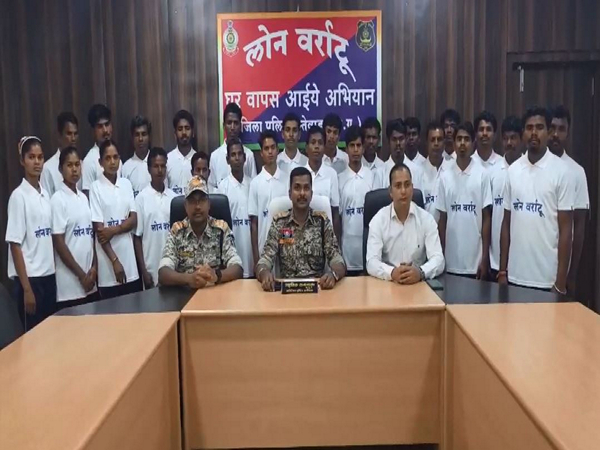Pakistan continues to pursue policy of denial on harbouring terrorists: Report
May 15, 2022

Islamabad [Pakistan], May 15 : The Pakistani authorities continue to pursue a policy of denial when it comes to accepting the presence of terrorists operating on their soil, even as the world community is forcing the country to act on some key terrorists, a media reports said.
When it comes to terrorism, Pakistan's playbook is not very difficult to decode. The default setting is to deny everything and cover up the tracks. When denial doesn't work, Pakistan takes the plea that the people accused of terrorism are not from Pakistan, the Times of Israel said.
When it is proved that the terrorists were Pakistani, the authorities claim they were non-state actors. But the most troubling issue is that the State never seems to move against these 'non-state actors'. If anything, the state pulls out all stops to protect and shield these so-called non-state actors, the report added.
If the pressure mounts to a point where the state is forced to demonstrate action against these elements, it either does an eyewash of a prosecution, or else it declares these elements have bolted and cannot be located, the report said.
For many years, Pakistanis at the highest level claimed that Osama Bin Laden was dead. The former military dictator and stalwart ally of the West, General Pervez Musharraf, said on numerous occasions that Osama was in all likelihood dead. But as it happened, not only was found Osama alive, he was living in a safe house, a stone's throw away from the Pakistan Military Academy, near Abbottabad.
After the Mumbai terror attacks, Pakistan initially washed its hands off the entire incident and claimed it had nothing to do with them. They denied the attackers were Pakistani. After Ajmal Kasab was captured alive, the Pakistanis first denied he was a Pakistani, the report said, adding, that when it became known that Kasab was from a small town called Faridkot in Okara district, Pakistani officials at first claimed there was no Faridkot in Pakistan.
When Sajid Mir's name first cropped up in relation to the Mumbai attacks, the Pakistanis feigned complete ignorance. They pretended that nobody by the name and the description existed. This despite the fact that Sajid Mir had been convicted in absentia by a French Court.
Later, when the pressure became too much, especially after the FATF started insisting on Pakistan demonstrating intent through action, the Pakistanis declared that Sajid Mir had died.
But the matter did not end there because the FATF sought information about the investigations that Pakistani authorities had conducted before they discovered that Sajid Mir had 'died' and also the information they had gathered to actually confirm his death, the report said.
Despite trying to sound very convincing, Pakistan wasn't quite able to convince the FATF which continued to seek more clinching evidence in the Sajid Mir affair. Finally, last April Pakistan was forced to come clean, the report further said.
Pakistan reported to the Asia Pacific Group that the forensic analysis revealed that while the dead body in the grave was the child of Sajid Mir's mother, there was no conclusive evidence that the body was of Sajid Mir. Finally, in the third week of April, they managed to 'apprehend' Sajid Mir. Thus the man who had been proclaimed dead and buried had been resurrected, the report said.
The resurrection of Sajid Mir and his arrest and prosecution is certainly a big victory for the FATF its processes, procedures and the pressure it built on Pakistan. It is a demonstration that when the international community works to a purpose, terrorists can be brought to justice, Times of Israel further said.
It is critical that this pressure be maintained to ensure that Pakistan lives up to the high-level political commitments it has made to FATF and not only prosecutes but also punishes the terrorists that have wreaked so much death and destruction not just outside Pakistan but also inside, the report concluded.


















